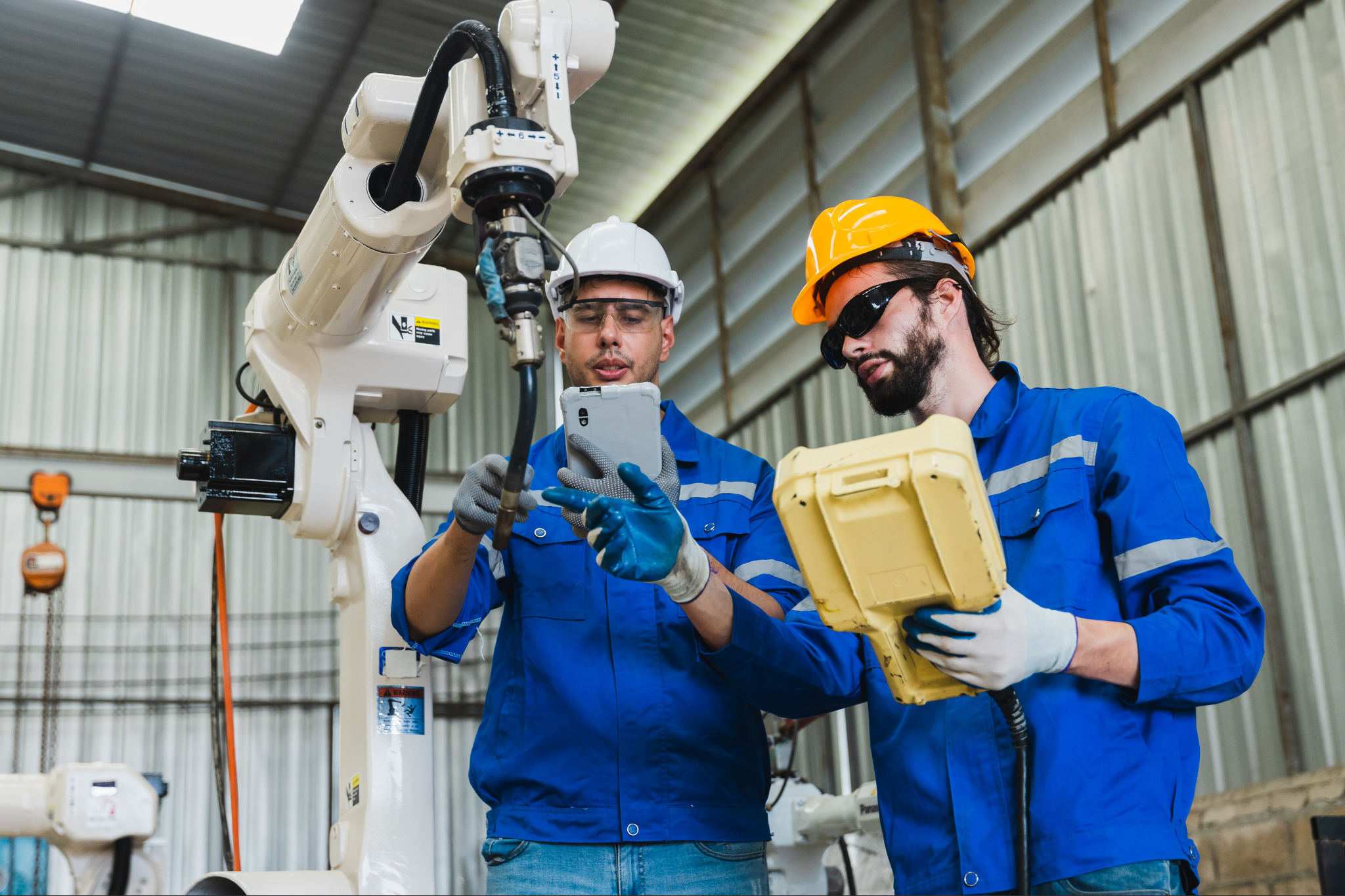Walk into any state-of-the-art manufacturing facility today, and you’ll find a symphony of machines and technology working in harmony. But behind this orchestrated performance lies an intricate web of advanced systems designed to preemptively solve problems and streamline operations. As the manufacturing industry faces increasing pressure to improve efficiency and reduce costs, the strategic implementation of predictive maintenance, data analysis, and AI is becoming essential.
Predictive Maintenance: The Proactive Approach
Imagine you’re driving a car equipped with a system that predicts and prevents engine failures before they happen. Now, apply that concept to a manufacturing plant. Predictive maintenance transforms how factories operate by using sensors and data analytics to anticipate equipment failures. This approach allows for timely interventions, reducing downtime and maintenance costs. Instead of waiting for a machine to break down, manufacturers can now predict when it will need service and plan accordingly.
For instance, a major aerospace manufacturer implemented predictive maintenance and saw a 20% reduction in unexpected machine downtime. This not only saved costs but also improved production schedules and product delivery times.
Data Analysis: Mining for Efficiency
In today’s digital age, data is the lifeblood of manufacturing. Every machine, every process, and every step in the production line generates valuable data. The challenge lies in effectively harnessing this information. Advanced data analysis tools sift through mountains of data to uncover insights that drive decision-making.
Consider a leading automotive manufacturer that utilized data analytics to optimize its assembly line. By analyzing data from various stages of production, they identified bottlenecks and inefficiencies. The result? A streamlined process that cut production time by 15% and significantly reduced waste.
AI: The Intelligent Assistant
Artificial intelligence is the powerhouse behind many of these advancements. AI algorithms can process and interpret complex datasets far more quickly and accurately than human analysts. In manufacturing, AI is used for everything from quality control to supply chain optimization.
Take the example of a global electronics manufacturer that integrated AI into its quality control process. By using AI to analyze product images and sensor data, they were able to detect defects with greater precision. This not only ensured higher product quality but also reduced the cost associated with manual inspections and rework.
The Synergy of Integration
The real magic happens when predictive maintenance, data analysis, and AI are combined. Together, they create a feedback loop that continuously improves manufacturing processes. Predictive maintenance provides the data, AI interprets it, and the insights gained lead to smarter operational decisions.
For example, a leading chemical manufacturer integrated these technologies to create a “smart factory.” Sensors and AI monitored every aspect of production, predicting maintenance needs and optimizing processes in real-time. The outcome was a 25% increase in overall efficiency and a significant reduction in operational costs.
Navigating Challenges and Ethical Considerations
While the benefits are clear, integrating these technologies is not without challenges. Data security and privacy are paramount. Manufacturers must ensure robust cybersecurity measures to protect sensitive information. Additionally, ethical considerations around AI, such as bias and transparency, must be addressed to build trust and reliability in these systems.
The future of manufacturing lies in the intelligent integration of predictive maintenance, data analysis, and AI. These technologies are not just enhancing operations—they are revolutionizing them. By adopting a proactive, data-driven approach, manufacturers can achieve unprecedented levels of efficiency and innovation. The factories of tomorrow are not just automated; they are intelligent, adaptive, and remarkably efficient. Embrace these technologies today, and lead the charge into a smarter, more sustainable future in manufacturing.
